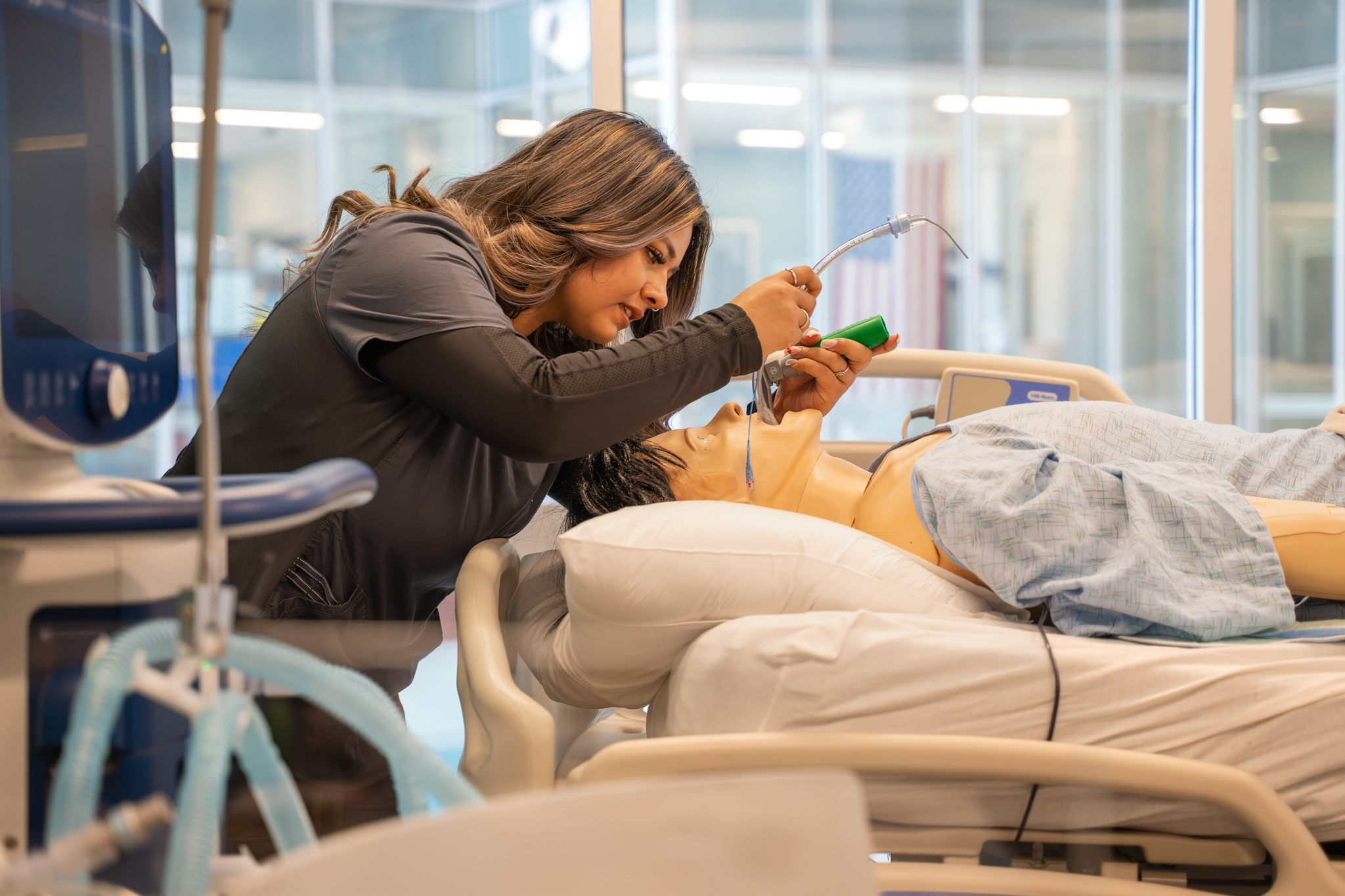
Inhale, Exhale
By Nate Ziegner | Photography by Logan Spikes
When she first set foot on the Midwestern State University (MSU Texas) campus, Wichita Falls native Victoria Velasquez had no idea what to expect. As a first-generation college student, she was venturing into the unknown with no forecast for the next four years.
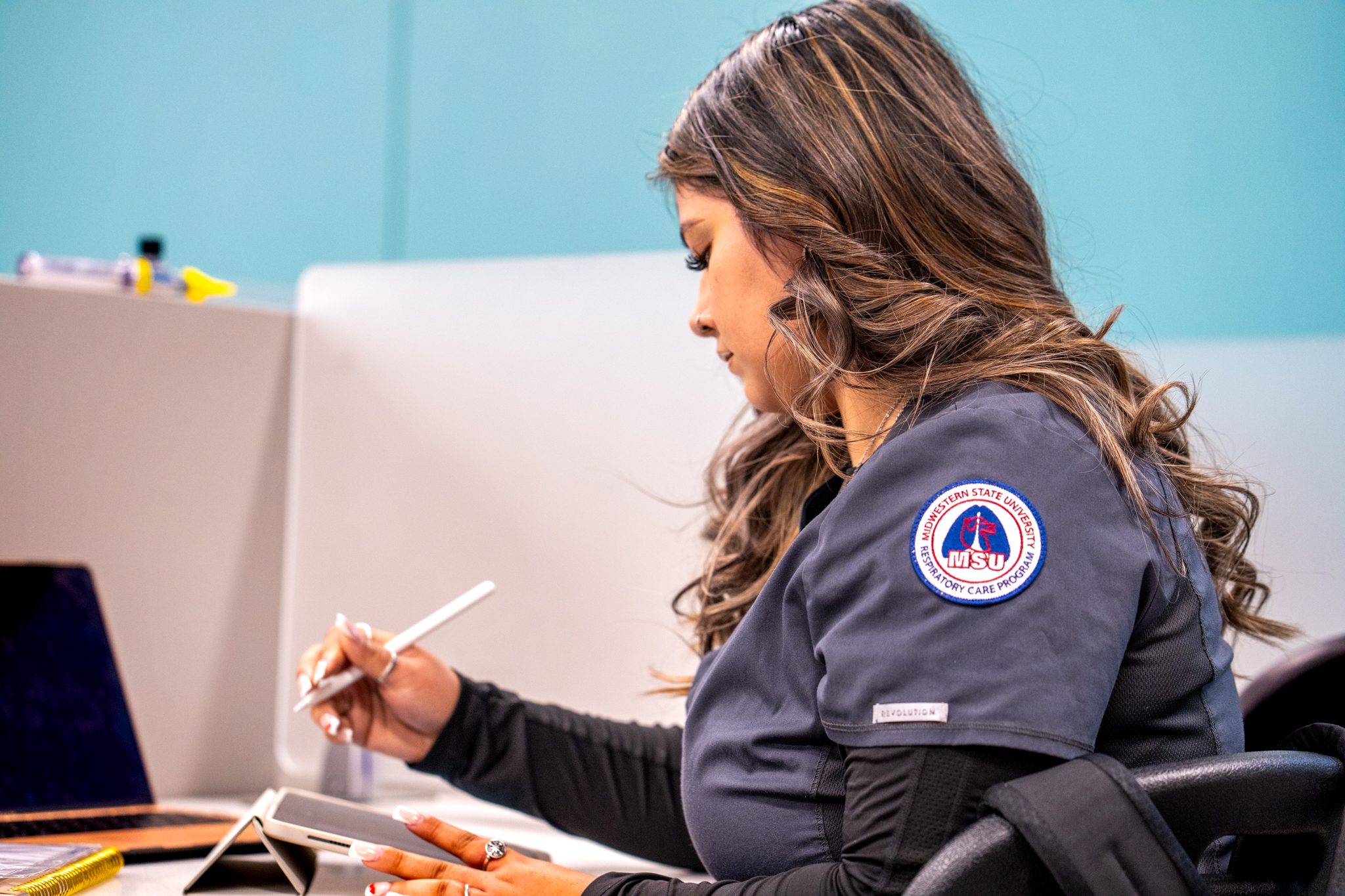
“I was 18, fresh out of high school, and college wasn’t really something I knew would happen,” Victoria said. “I’m from a lower-income area of Wichita Falls; my parents didn’t go to college, so here I was trying to navigate foreign territory.”
The one thing she knew for sure was what she wanted to study. Growing up fascinated by the human body and based on personal experiences, Victoria settled on majoring in nursing.
“My dad developed a lot of heart and lung issues from past drug and alcohol abuse that led to him needing open-heart surgery in 2013,” Victoria said. “From then on, I knew I wanted to do something where I would be part of the healing process.”
Many financial issues arose as she prepared to start her first year at MSU Texas. But, growing up in an economically disadvantaged household instilled in Victoria a hardheadedness that made her reluctant to seek support.
“I didn’t want it to look like I was asking for charity, but I was in desperate need of help,” Victoria said. “I remember, though, a professor asked me if I had applied for financial aid. And I said, ‘What’s that?’”
With guidance from her professors, Victoria learned the ins and outs of the resources available to her—from understanding what a grant was to the difference between subsidized and unsubsidized loans. For the first time, she felt like she wasn’t alone in navigating these choices.
One of those individuals was Erica Judie, a professor in the respiratory care department at Robert D. & Carol Gunn College of Health Sciences & Human Services. Judie sees a lot of her younger self in Victoria, and after having her in multiple classes, the two developed a close bond.
Judie said one of the things that makes the MSU Texas community so special is the ability of professors and students to create a relationship that goes beyond weekly lectures. Since taking Victoria under her wing, the two realized they attend the same church and are navigating their personal growth simultaneously.
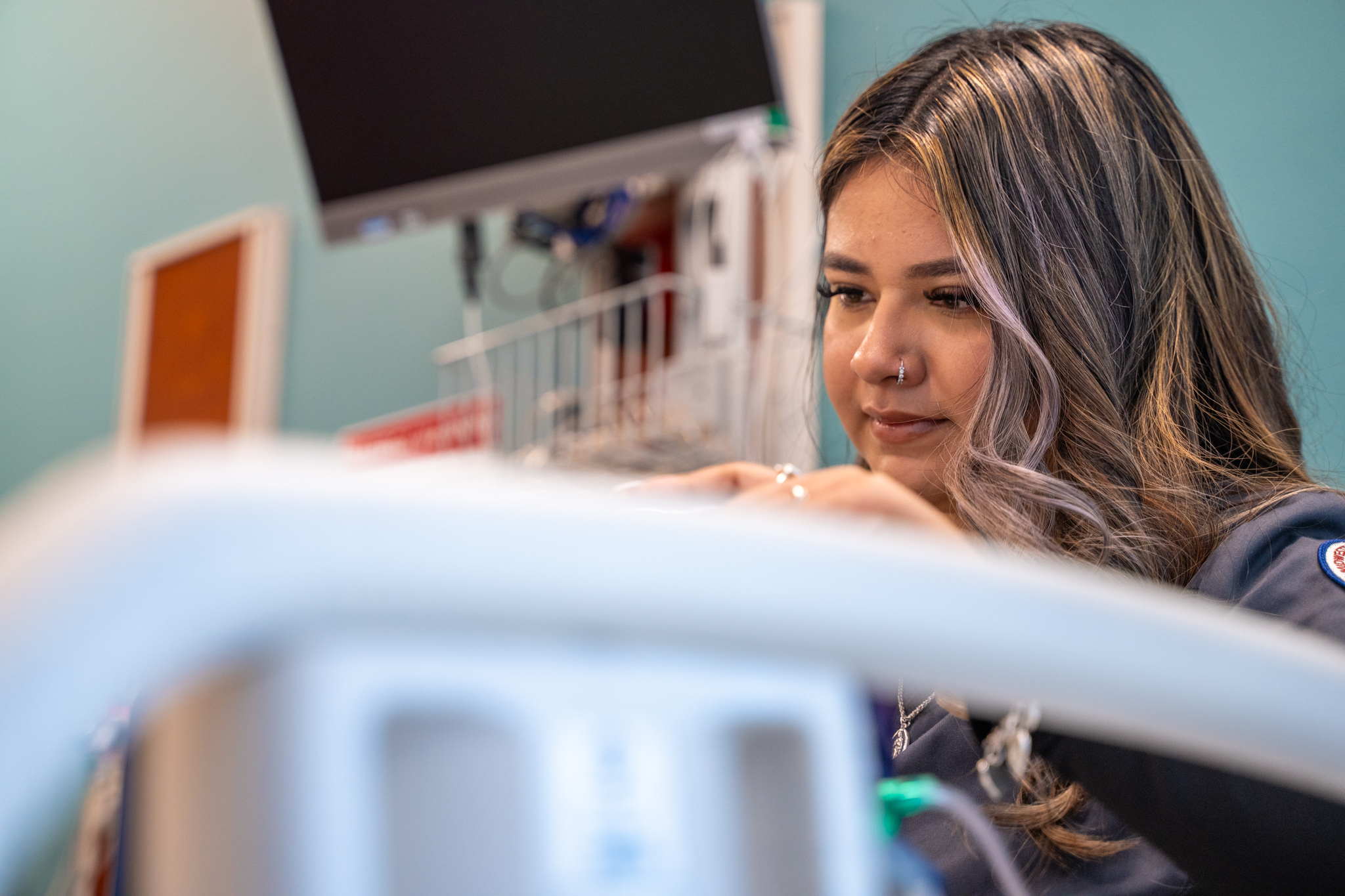
After her first two years in nursing and discussions with Judie and other professors, Victoria decided to change gears and study respiratory care. Though she was making strides in her studies, personal hardships began to flare up. As Victoria approached the midway point of her academic career, her father’s health took a turn, and he was hospitalized.
Burdened with medical expenses, she didn’t want to add to her family’s stress and decided she was on her own for living expenses and textbook costs. But without the proper aid, she didn’t know if she could continue with her education and was desperately trying to find ways to make it work. Not knowing who to talk to, she explained her struggles to her professors, who pointed her to emergency funds from the Chancellor’s Council.
“That brought me even closer to my desired profession because I had great professors at MSU Texas who knew how to guide me and where to find additional scholarships,” Victoria added.
Judie recalls the initial conversation with Victoria when she came into her office, worried about whether she could continue or not. Knowing of resources like the Chancellor’s Council funds, Judie emphasized the importance of aid that allows students like Victoria to continue their career preparation.
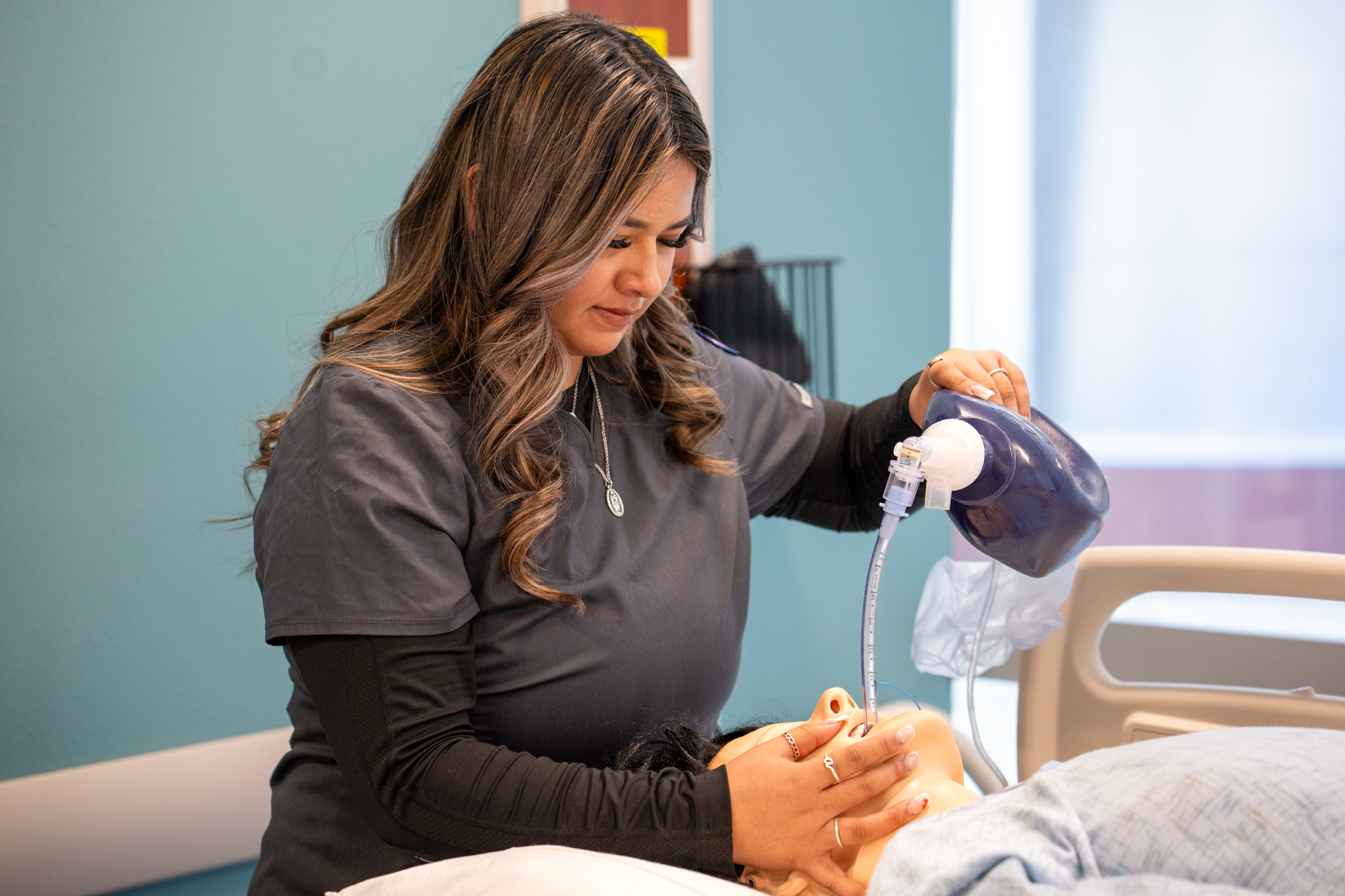
“Having resources that helped her see, ‘Hey, there’s a way I don’t have to stop school just because I encounter personal obstacles out of my control,’ makes such a difference,” Judie said.
Sitting in her room, she decided to lay everything on the table in the application, being completely honest about the challenges of navigating college for the first time while also balancing her worry for her father. When Victoria found out she had received the funds, she breathed a small sigh of relief, knowing part of her worries would be lifted. She also focused on learning and pursuing her passion for the medical field instead of trying to prepare for exams and assignments without proper course materials.
Then tragedy struck at the start of the spring semester of Victoria’s junior year when her dad passed away, and her motivation for school came to a halt as she coped with grief.
“I wasn’t picking up habits that were keeping me going,” Victoria said. “My decisions weren’t moving me forward in a way that would’ve made my professors and parents proud. I didn’t know what was next.”
Through her faith and by implementing new habits, like going to the gym and throwing herself into work, Victoria pulled herself out of the personal turmoil left in the wake of her father’s death. She used her time at church to develop a sense of peace, her part-time job at Target to connect and laugh with coworkers and exercise as a conduit to release her anger and pain.
“During the summer, I knew I was going to have to restart my junior year—no easy task,” Victoria said. “I had gotten these internships and begun work on clinicals, which all got put on hold. Now, I had to decide to go back and do it all again.”
But her unwavering determination pushed her forward. She started again in fall 2024, using her dad’s health issues as a catalyst to make a positive impact on the lives of others. During her time in clinicals, she found her passion in trauma recovery through hospital ERs and the ICU, where she knew she could make the biggest impact.
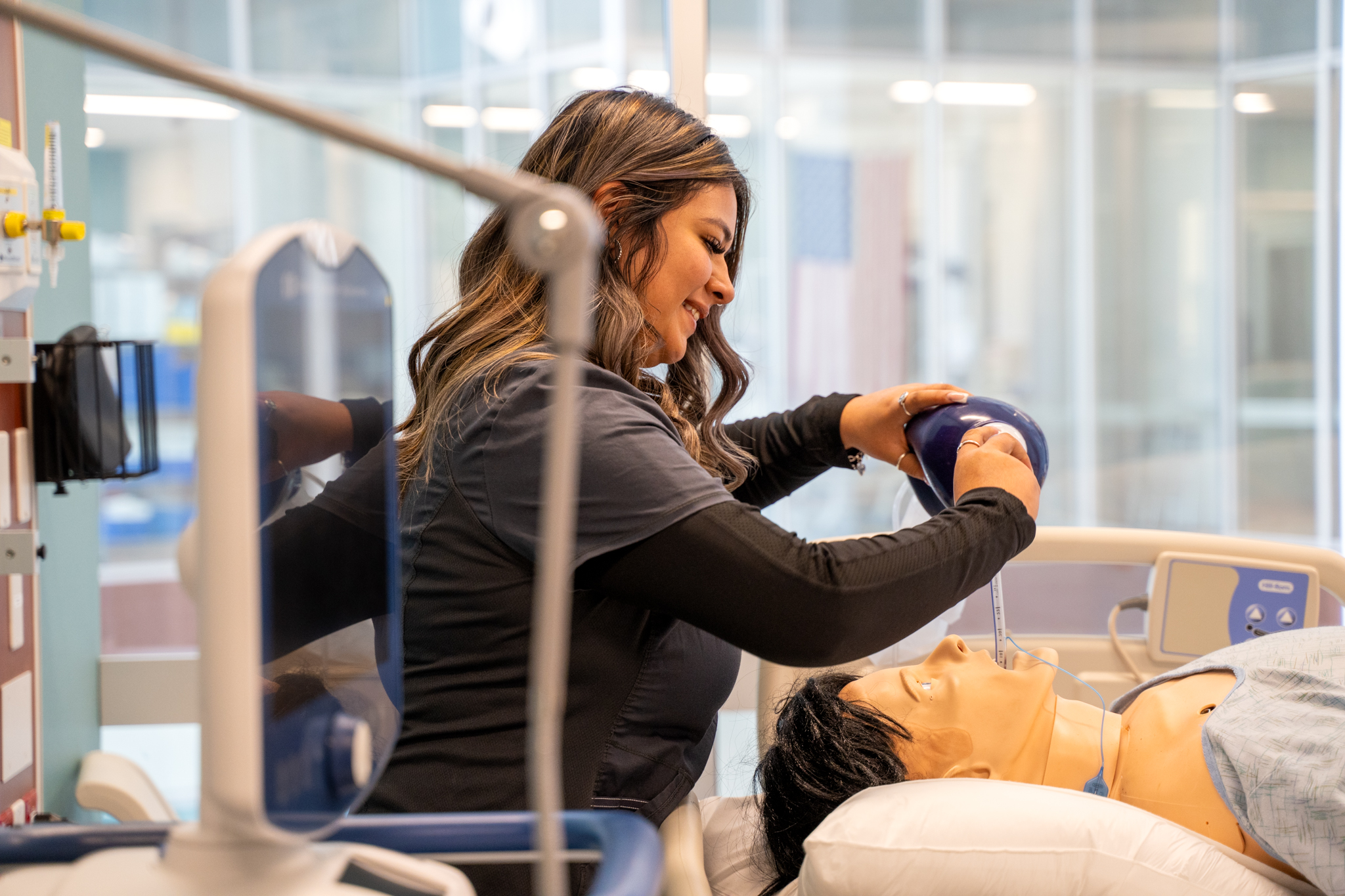
“I know what it is like being on the patient side of medical emergencies—with all the burden, stress and sadness it comes with,” Victoria added.
Judie sees that renewed drive in Victoria and credits her perseverance in the face of life’s struggles to the student and person she has become.
“I think, regardless, she would have progressed just fine,” Judie said. “But you can see that through those life struggles, she has made a complete change and is ready to roll.”
With finances still a significant consideration, Victoria is extremely appreciative the grants and funding from the Chancellor’s Council have been reinstated, allowing her to pick up where she left off. Victoria has reapplied for internships in cities all over the U.S., including Seattle and Chicago.
“I have lived in Wichita Falls my whole life, and growing up, my dad told me one of his biggest wishes was for me to travel and gain experiences where he knew I’d do big things,” Victoria said. “I’ve used that to push myself to apply all over, in places I know I can help and be exposed to new things.”
Her newfound passion has also helped create a sense of community with her family, bringing them closer for weekly dinners and frequent celebrations. This has given her that familial camaraderie that is vital when juggling school, clinicals and her part-time job. She is using her renewed drive to help her younger family members set themselves up for success in college, ensuring she is their support system.
Going into her senior year and beyond, Victoria is relentless in her resolve to become a respiratory therapist who creates positive change in her patients’ lives. After a few years working in new places, she hopes to return to school to become a perfusionist, operating the machines that keep a patient’s heart and lungs working during surgery.
“No matter where I am or what I am doing, I hope my patients know me as someone who cares,” Victoria said. “Whether that be helping them adjust their pillows so they are comfortable, running to grab a glass of water or sitting down and letting them talk out their feelings on a personal level. I have been so blessed by the support of people around me through all my ups and downs, and I can use that to provide the same blessings for every patient I encounter, no matter the circumstance.”
This notion is critical in the everchanging medical field, Judie said, and with students like Victoria, it is all the more necessary.
“The importance of having individuals like Victoria go out there and make a difference in their patients’ lives is astronomical,” Judie added. “We have to have and teach health care professionals who are not only going to treat but take care of our population.”

